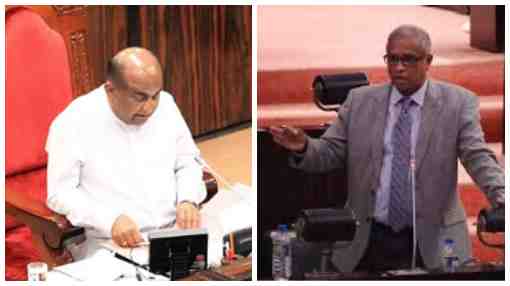
President’s Counsel and Jaffna District Member of Parliament M A Sumanthiran filed a fundamental rights application in the Supreme Court yesterday (14 Feb) challenging the Speaker’s certification of the Online Safety Bill as having been enacted into law.
The Petition states that the Online Safety Bill was published in the Gazette on 18th September 2023 and then Tabled in Parliament on 3rd October 2023.
Several Petitions were then filed challenging the constitutionality of the Bill, and the Supreme Court’s determination on the Bill was read out in Parliament on 7th November 2023.
The Supreme Court Determination held that several clauses of the Bill would require a 2/3 majority of the whole number of Members of Parliament voting in its favour for the Bill to be enacted into law. However, the Determination also held that if specified amendments were made, the Bill could be enacted by simple majority.
In his Petition, MP Sumanthiran claims that the government was seeking to enact the Bill without fully adhering the Supreme Court Determination, and that he had pointed out that the draft committee stage amendments would not sufficiently rectify the shortcomings, and provided his concerns in writing to the Speaker.
However, the Parliament had voted on the Bill prior to ensuring full compliance with the Determination, according to Sumanthiran.
The Petitioner claims that the Bill could have been passed by simple majority only if all the changes required by the Supreme Court were incorporated. If these were not incorporated, the Bill could only have been enacted if 2/3 of the whole number of MPs voted in favour of the Bill.
MP Sumanthiran states that the Bill was approved only by a simple majority of members present, and that therefore the Bill could not have become law.
Therefore he states that the Speaker, by certifying that the Bill was enacted into law, has violated the public trust and the fundamental rights guaranteed to Sumanthiran and the citizenry.
Sumanthiran also states that according to the Speaker, he had acted in accordance with advise given by the Attorney General, and if so, the Attorney General is also responsible for the violation of fundamental rights occasioned by the purported certification of the Bill.
The Speaker of Parliament and the Attorney General are named as Respondents to the Application.